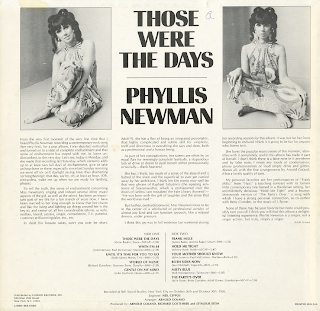The Moon Was Yellow
A Real Swingin' Affair
That Wonderful Sound And Beat Of A Big Band
Tommy Watt And His Big Swingin' Band
Recorded by E.M.I. London
High Fidelity King International
King Records 2012
1960
Personnel:
Trumpets: Stan Roderick, Albert Hall, Tommy McQuater, Bert Courtley
Trombones: Jack Bain, George Chisholm, Jackie Armstrong, Jack Irvine
Alto Sax: George Hunter
Tenor Sax & Bass Clarinet: Bob Efford
Tebor Sax, Clarinet & Vibes: Tubby Hayes
Bariton Sax & Clarinet: Ronnie Ross
Flute & Piccolo: Peter Edge
Bass Joe Muddel
Guitar: Ike Issacs
Piano & Celeste: Tommy Watt
Drums: Phil Seamen
Percussion: Tommy Blades
From the back cover:
I first met Tommy Watts in 1944 at the R.A.F. Air Crew Reception Center in Scarborough. We were both sitting in depressed attitudes contemplating the inoculations and vaccinations ahead – but each of us recognized the other as being connected with "show business". It must have been our hair cuts! I had just left repertory in Harrogate – but Tommy had been called away form the more rarified atmosphere of the Dark Barriteau outfit. This band was then at the top and Tommy was, of course, its pianist. Needless to say a friendship sprang up between us and together we organized the station concerts – whilst in the N.A.A.F.I. I would gather the crowds round Tommy to hear his incredible handling of that monster – the N.A.A.F.I. piano!
After Scarborough we lost sight of each other until 1950 when I came to the Whitehall Theatre with "Reluctant Heroes" – but in the intervening years Tommy had finished the R.A.F. service and was now well established as a West End pianist and up to 1955 he played with such names as Ronnie Muntro, Kathy Stobart, Paul Fenjoulet, Ken Mackintosh, Harry Parry, Ambrose and Harry Roy – so all the time his experience was increasing. Then in 1955 I asked him if he'd ever though of forming his own band. Tommy eagerly agreed to the idea and together we arranged a private recording session which immediately resulted in his being signed up by Parlophone. Since then he has made several 78's, one E.P. and now here, at last, is his first L.P. – Note by Brian Rix
From Billboard - August 22, 1960:
Tommy Watt and his Big Swingin' Band King 2012 Album is one of King's new international series, and was recorded in London. Watt has a swinging big band, with danceable arrangements. "Won't You Come Home, Bill Bailey," "The Moon Was Yellow," "Easy Street" are typical.
Won't You Come Home Bill Bailey
Easy Street
Going To The Country Fair
Beaulieu Beef
Poor Little Rich Girl
Medley: Lullaby Of Leaves, It Might As Well Be Spring, September Song
I'll String Along With You
The Moon Was Yellow
The Piper's Son
Scooter Brain
Vibe Rations
Five Foot Two, Eyes Of Blue
Medley: My Heart Stood Still, Zing Went The Strings Of My Heart, My Heart Belongs To Daddy
Rock Bottom




































